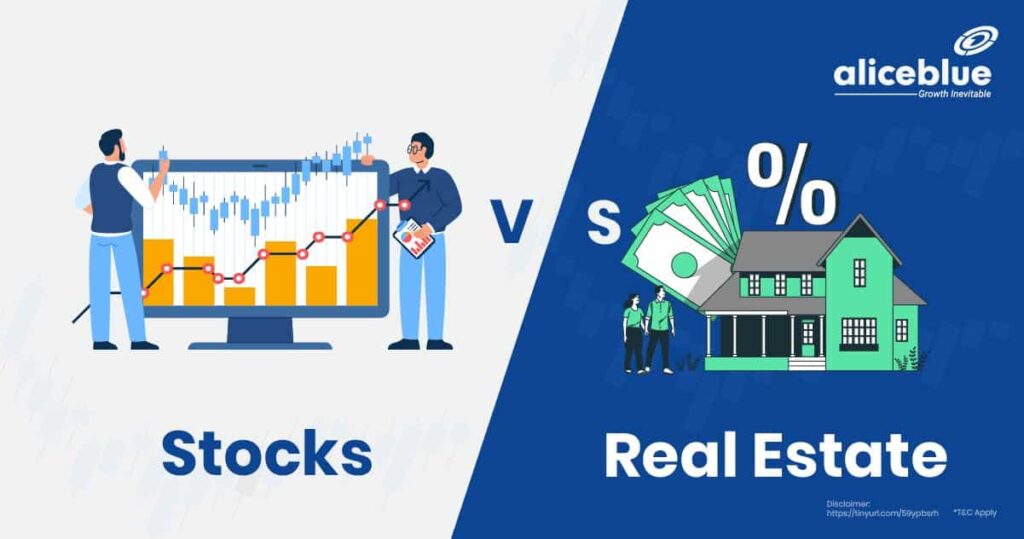When it comes to building wealth, most people are torn between property (real estate) and stocks (shares in companies). Both are powerful asset classes, but they work differently and fit different types of investors. So, how do you know which one suits you?
Let’s break it down with facts and real-life examples.
1. Accessibility & Entry Cost
- Stocks: You can start investing in stocks with as little as ₦1,000 through apps like Trove, Bamboo, or Chaka. It’s quick and accessible.
- Property: Traditionally, real estate requires millions of naira upfront for land or houses. But with fractional ownership platforms like Propvest Africa, you can now start with ₦50,000.
Example:
Chika, a young professional in Lagos, invests ₦20,000 monthly into stocks. But with Propvest, she put ₦100,000 into a Lekki apartment project and now owns a stake in a premium property without saving for years.
2. Returns & Growth Potential
- Stocks: Nigerian Stock Exchange (NGX) equities delivered 9% returns in 2023, outperforming many markets worldwide. However, stocks can swing dramatically — some companies can lose value overnight.
- Property: Real estate in Nigeria typically delivers 5–25% annual rental yields, plus 20–40% land value appreciation over 3–5 years (World Bank, NBS data). It’s steadier, less volatile, and tied to a physical asset.
Example:
Land in Ibeju-Lekki bought for ₦2 million in 2018 now sells for over ₦7 million — a 250% growth in 6 years. By contrast, if you had bought certain banking stocks in 2018, some doubled in value, while others stayed flat.

3. Liquidity (How Easily You Can Cash Out)
- Stocks: Highly liquid. You can sell shares on the exchange instantly if there’s a buyer.
- Property: Traditionally illiquid — it can take months to sell land or a house. But with Propvest’s upcoming secondary marketplace, investors will be able to resell their Smart-Cert shares in real estate, making property more liquid than ever before.
Example:
Kunle invested ₦500,000 in stocks and could sell them in a day. His ₦500,000 land contribution, however, took 8 months to find a buyer. If that land were on Propvest, he could have sold his share to another investor online much faster.
4. Risk & Security
- Stocks: Risk depends on company performance and market conditions. Stocks are paper assets; when a company goes under, shareholders can lose everything.
- Property: Real estate is tangible — land or buildings rarely lose all value. The main risks are fraud, unclear titles, and stalled projects. Platforms like Propvest reduce this risk by offering Smart-Cert blockchain certificates, SEC compliance, and SPV structures that legally secure ownership.
Example:
During the COVID-19 pandemic, Nigerian stocks experienced a sharp decline in 2020, wiping out billions of dollars. Meanwhile, property owners still earned rent from tenants. This shows how real estate is more resilient in crises.
5. Who It Suits Best
- Stocks: Best for short-to-medium-term investors, those comfortable with higher risk, and people who want flexibility to trade. Ideal if you want quick liquidity and don’t mind price swings.
- Property: Best for long-term wealth builders, those seeking stability, and investors who want steady income and tangible assets. With fractional ownership, it’s now also suitable for young professionals and diaspora Nigerians.
Final Thoughts: A Smart Mix
The truth is — it’s not “property vs stocks” but rather property + stocks. Smart investors diversify. Stocks give you agility, property gives you stability.
With Propvest Africa, you don’t need millions to get into premium real estate. You can combine small investments in property with your stock portfolio to build balanced, generational wealth.
Call to Action:
Ready to own a share of Nigeria’s booming property market? Start with ₦50,000 on Propvest Africa and grow your portfolio with confidence.


